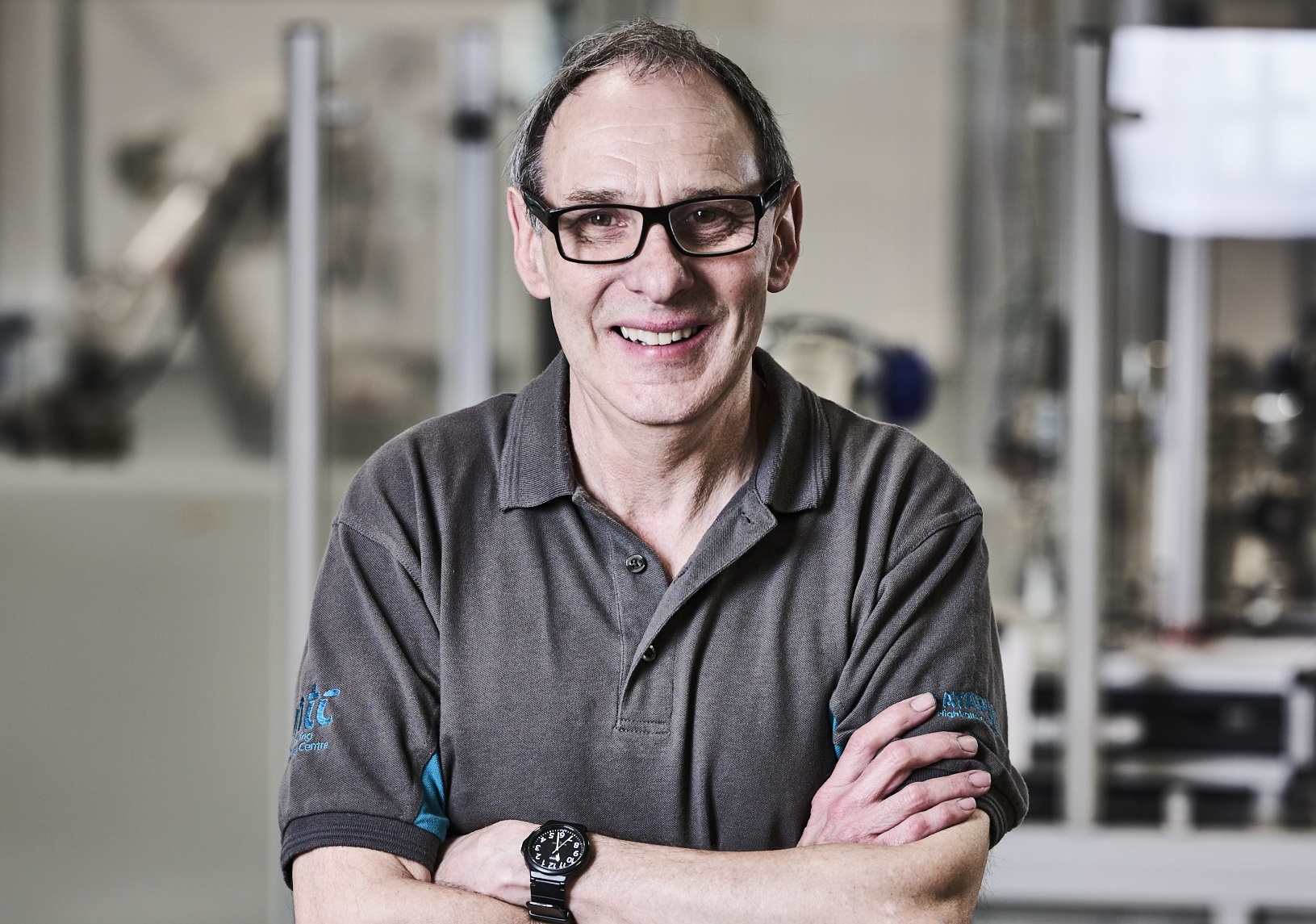Meet the trainer: Jeff Russell

As a former engineering apprentice, Jeff Russell developed his foundational skills on the job, just like our OAS apprentices do. Following a long and fruitful career working with component manufacturers serving multiple sectors, Jeff found his calling to teach when he was given the opportunity to train ambitious apprentices, and he took a leap into fulltime training!
Over the last ten years, Jeff’s training career has taken him on a journey through teaching Design & Technology at a secondary school, to training at a further education college, to gaining a degree, and now he is helping us train the next generation of engineers at OAS!
In this interview, Jeff tells us about his experience and about what he thinks makes a star apprentice.
What was your prior industrial experience before you joined MTC Training?
I undertook an apprenticeship with British Rail working in the tool room, which involved manual milling and turning, along with hand fitting. This is where I picked up many of the foundational skills that I brought through my career with me. I also worked in the general machine shop where I used specialist equipment and machinery involved in railway engineering.
When I’d completed my apprenticeship, I was ready for a change and moved to an engineering firm in Berkshire producing components for the aircraft industry. This allowed me to broaden my skillset, setting and programming CNC mills and machining centres.
I went on to work for several companies producing components for the aircraft, automotive and motor racing industries, as well as a brewing and soft drinks equipment manufacturer. During this time, I was given the opportunity to train some apprentices, which opened my eyes to the possibilities of sharing my knowledge with the next generation.
Why did you decide to become a trainer?
Inspired by that opportunity to train, in 2013, I decided to change my career path. I took up a role as a Design and Technology Technician in a secondary school, which led me to an Open University degree, and I gained experience teaching in a further education college before returning to the school.
I went on to teach whole class groups and support students with special needs with their learning. When the opportunity to become a trainer at OAS presented itself, I felt that this was the best way I could draw upon my previous experiences and enable the apprentices to learn and develop the skills needed to become engineers.
Engineers are needed more than ever to help solve problems across a range of industries, from energy and climate change to transport and anything else. It’s crucial that we are training the next generation of engineers to take on these challenges.
What would you say are your career highlights?
During my time in industry, I was involved in several exciting projects, including working on prototypes for the motor and aircraft industries, but alongside that, the qualifications that I achieved during my apprenticeship were the bedrock for everything else I have done in my career.
These not only give me the skills and knowledge to do my job but also give me the learning ethos with which to make progress in other areas and expand and update skills throughout my working life. They even gave me the confidence and work ethic needed to study for a degree with the Open University.
Now, helping students achieve their goals is a consistent highlight, both in the secondary schools I have worked in, and now at OAS with our apprentices.
What do you enjoy most about your training role?
OAS offers the opportunity to work in a well-equipped centre, with students who are ready to learn and with small class sizes. Since I come from a school and college background, it really helps to be able to give more undivided, one-on-one support in the classroom.
How is MTC Training different from other training centres?
Although the facilities at the MTC are excellent the mindset is for continuous improvement, and more importantly there is the will and structure for that to continue. I work with a supportive and knowledgeable team at OAS and the MTC, where we’re encouraged to ask questions and allowed to develop both ourselves and the learners.
What makes a good apprentice?
Our programme is fast-paced and requires commitment from the learners, so apprentices need to show resilience and commitment. For many, this is a different environment from their previous experience, with some learners returning to education and training for the first time in years, and some with very little experience of this environment. Others may be straight out of school, and therefore, can require more help in becoming more independent in their learning.
What advice would you give to prospective apprentices?
I make apprentices clear that they should always follow procedures and keep to the rules of the centre. Because our courses are fast paced, they need to plan and keep on top of their studies if they are to stay on track. But importantly, they need to enjoy what they are doing.
What advice would you give to any prospective trainers?
For anyone thinking of training, you are taking part in something special! It’s an opportunity to shape someone’s future and give them skills and a work ethic that they avail of for the rest of their working life.
Never be afraid to ask questions of the learners, your colleagues, and yourself. At times it can be challenging, but for the most part it is rewarding.